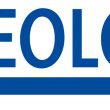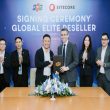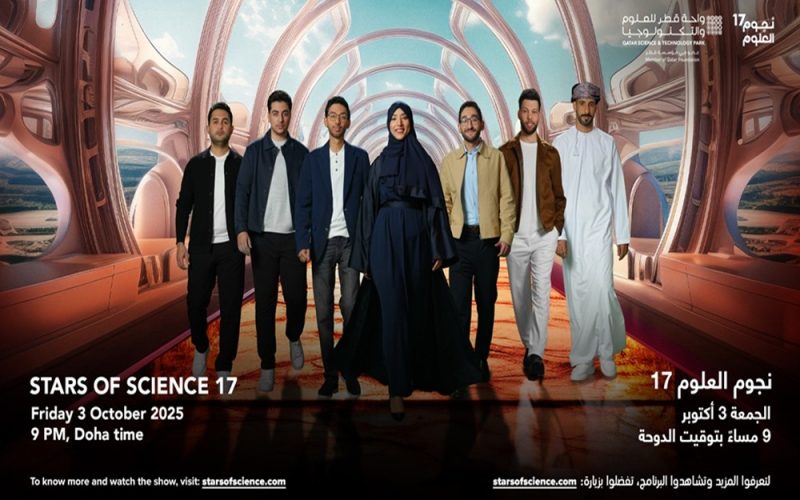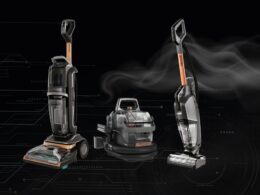The season sees the contestants tackling real issues across surgery, health, sustainability, and the environment.
From AI-powered surgical systems to wearable health tools, the seven finalists of Stars of Science season 17 are proving that regional challenges call for regionally grounded solutions. Their inventions, rooted in lived experience and driven by a commitment to impact, reflect a broader shift in how Arab youth are applying science – deliberately, collaboratively, and with purpose.
Since its inception in 2009, Stars of Science, hosted at Qatar Science and Technology Park (QSTP), a member of Qatar Foundation, has become a catalyst for innovation across the Arab world. Over 313 episodes have aired since season 1, with a network of 175 alumni from 18 Arab countries, and helping launch more than 55 alumni-founded businesses across diverse sectors.
Frontiers in Surgery
Mohamed Kahna from Tunisia is developing a real-time surgical guidance system that mimics the role of a GPS in the operating room. Designed for laparoscopic surgeries, it overlays critical visual and auditory instructions to help surgeons navigate complex procedures. Building on his Bachelor’s Degree in Surgical Technology, Kahna’s work pushes the frontier of surgical precision. “I want this system to ensure surgeons have clear guidance in their most critical moments,” says Kahna.
Also working to enhance surgical outcomes, following his MSc in Computational Neuroscience and Cognitive Robotics, Khaldoun Megdady from Jordan is developing a 3D coronary artery simulation platform. The invention enables surgeons to rehearse bypass procedures using AI-generated anatomical models — a step forward in pre-operative planning. “This is rehearsal before reality, it gives surgeons a chance to prepare in detail, which can mean safer and more precise procedures,” he explained. Together, their innovations represent a growing regional investment in technologies that improve precision and reduce risk.
Powering the Green Transition
With electric mobility expanding across the Arab Gulf, Mohammad AlShaikh Saleh from Jordan, created an AI-powered system to predict battery failures through physics-based modeling. “There is a lack of transparency in most AI systems,” said the Ph.D. in Electrical Computer Engineering-holder. “I wanted to build one that’s more reliable, with physics to back it up.” As the GCC’s electric vehicle market is projected to reach $10.44 billion by 2034, and Saleh’s system supports the region’s green-energy ambitions.
Protecting Marine Ecosystems
Inspired by Oman’s maritime sector after completing his MSc. in Marine Science and Fisheries, Mohammed Al Mur Al Salmi developed an enzyme-based spray to prevent bacterial buildup on underwater surfaces — an eco-friendly alternative to toxic marine coatings. “Our economy depends on the ocean,” he said. “I wanted to protect what gives us life.” His work aligns with recent environmental collaboration between Oman and Qatar, including Qatar’s marine reserve designation covering 2.5% of its territory.
Health and Human Well-being
Algeria’s Laid Dardabou targets emotional wellbeing with a smart watch-integrated tracker that monitors vitamin D and other biomarkers in real time, empowering users to better understand and manage their mental health. “If technology can track every step we take, it should also help us track how we feel,” said the contestant currently completing his second Ph.D in Animal Nutrition. His device tackles a pressing health challenge in a region where vitamin D deficiency rates are among the highest globally.
Also completing her Ph.D in Biomedical Engineering, Saudi Razan Bahabri focuses on stroke rehabilitation through gamified therapy. Her system transforms recovery into engaging, game-like exercises while enabling remote monitoring by clinicians. “Rehabilitation therapy doesn’t have to be repetitive,” she noted. Research shows that interactive platforms like FitMi can triple patient movement compared to traditional therapy.
Nature-Inspired Medicine
Upon completing his Doctor of Pharmacy (PharmD), Ryad Hadj Habib from Algeria drew inspiration from nature. His system uses a natural property of scorpion venom to protect cancer treatments from being blocked by the immune system, improving the precision treatment for diseases such as cancer. “It may sound radical, but it’s rooted in biomimicry — the science of using nature’s designs to inspire human innovation,” he said. From sharkskin-inspired hospital surfaces to bullet trains modeled on kingfishers, biomimicry has long fueled scientific breakthroughs; Habib’s innovation carries that legacy forward.
The seven contestants of season 17 are proof that when Arab innovators are given space, support, and mentorship, they build technologies that don’t just respond to global trends — they lead. Their work reflects a growing maturity in the regional innovation landscape, where solving problems close to home is both a scientific challenge and a social mission.
Support the innovators shaping our region’s future. Tune in to see the progress of each of their inventions on Stars of Science, which airs weekly until October 2025 across several regional broadcasters and online.









